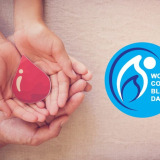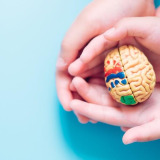Placenta Injections for Arthritis: A New Approach to Pain Management

According to new research, an injection of cells from the placenta can ease the pain and other symptoms of arthritis sufferers for up to one year.
The new treatment, ReNu, developed by British-US-based firm Organogensis, is made from cells of the innermost layer of the placenta, the amnion, which is donated at childbirth.
Previous research showed that a single injection of amniotic tissue, which is processed, can alleviate pain and other symptoms associated with arthritis.
In a 200-patient clinical trial, 69% of patients who received the placenta injection showed meaningful improvement in symptoms, whilst 63% noted a reduction in pain after just one injection of ReNu.
Now, new research involving 700 people in the US is taking place to determine the affectability of the jab and compare it against a placebo of saline solution.
Why use placenta cells to treat arthritis?
The placenta is a rich source of stem cells, which have been used for over 100 years to treat wounds and promote healing. In particular, the amniotic membrane, contains a powerful combination of growth factors and anti-inflammatory proteins, which can help the body to communicate with cells when the body is damaged or diseased.
Containing three key components, hyaluronic acid, collagen, and fibronectin, the cells from the placenta help to enhance healing by promoting the repair and reproduction of tissues, including cartilage. This is particularly important for those who suffer from arthritis, including osteoarthritis and rheumatoid arthritis – the two most common forms of arthritis.
In the UK, more than 10 million people have arthritis, with osteoarthritis affecting nearly 9 million people.
In a healthy knee, a layer of cartilage covers the end of the bones in a joint, serving as a protective cushion and providing a smooth surface to allow painless movement.
However, when osteoarthritis affects the knee joint, this protective layer is broken down through wear and tear, resulting in pain, swelling and issues with joint movement.
The new placenta injection treatment will help to lubricate joints and alleviate agony, which is often suffered by people with arthritis. The doctors who are carrying out this trial will continue to monitor patients for up to a year, comparing results against those participants who receive the placebo treatment.
Roger Hackney, a consultant orthopaedic surgeon at the Spire and Nuffield hospitals in Leeds, commented on the placenta injection: ‘As cartilage cannot heal in humans, the experimental jabs could have promise. Studies such as this are hugely important if they can provide evidence that the product has something other than the placebo effect.’
What is arthritis?
Arthritis is a common condition that causes pain and inflammation in the joints. Arthritis actually refers to more than 200 related joint conditions. However, the two most common conditions are osteoarthritis and rheumatoid arthritis.
Rheumatoid arthritis is an autoimmune condition affecting the joints that are caused by inflammation. Patients with rheumatoid arthritis suffer from cartilage degradation because their immune system generates a faulty response. This response affects various parts of the body, such as the collagen that keeps cartilage healthy.

Osteoarthritis is a condition caused by the degeneration of cartilage. Cartilage is supposed to lubricate joints and ensure that bones can move over one another. In patients with osteoarthritis, the cartilage becomes thinner and rougher. The bone underneath tries to repair the damage and sometimes overgrows, causing the shape of the joint to alter.
Arthritis can be acute with a sudden onset or a chronic long-term degradation, with main symptoms including:
- Restricted movements of the joints
- Joint pain, tenderness, and stiffness
- Inflammation of the joints
- Warm, red skin over affected joints
- Weakness and muscle wasting
Why store your own placenta?
During pregnancy, your placenta is a vital organ in your baby’s development, providing them with essential nutrients and oxygen throughout pregnancy. Once the baby arrives, the placenta is often discarded as medical waste. However, many parents are missing out on a once-in-a-lifetime opportunity that could protect their baby’s health for years to come.
Cells and tissue from the placenta have been used since the early 20th century to heal serious burns and diabetic ulcers and even to regenerate infected wounds. Since then, there has been a growing number of promising clinical trials using placental cells and tissue to treat other conditions such as brain injury, stroke, Crohn’s disease, and more.
By banking placental tissue, you can ensure that your child has access to as many of the latest regenerative therapies as possible as they become available.
Cells4Life is the only stem cell bank in the UK to offer placenta storage, meaning you can store both the amniotic membrane and cells from your placenta. Placenta banking with Cells4Life also means that you can maximise the therapeutic possibilities of your baby’s sample if you choose to bank both placenta and cord blood.
To find out more, simply request your FREE welcome pack here.
References
Organogensis, (2020) “Long-lasting OS symptom relief that really goes the distance”, available at: https://organogenesis.com/pdf/ReNu-Patient-Brochure-pages-050820.pdfNHS, (2020), “Overview – Arthritis”, available at:
https://www.nhs.uk/conditions/arthritis/Kathy Prendeville, (2021) “New placenta injection to help alleviate agony of arthritis”, RSVP Life, available at:
https://www.rsvplive.ie/life/health/new-placenta-injection-help-alleviate-23355307Roger Dobson, (2020) “Placenta jab to ease pain of creaky knees”, The Irish News, available at:
https://www.irishnews.com/lifestyle/2020/12/10/news/placenta-jab-to-ease-pain-of-creaky-knees-2154829/Roger Dobson, (2020) “The placenta jab that could ease pain of creaky knees: Injection of tissue may help alleviate agony of arthritis”, Mail Online, available at:
https://www.dailymail.co.uk/health/article-9027455/The-placenta-jab-ease-pain-creaky-knees.html






